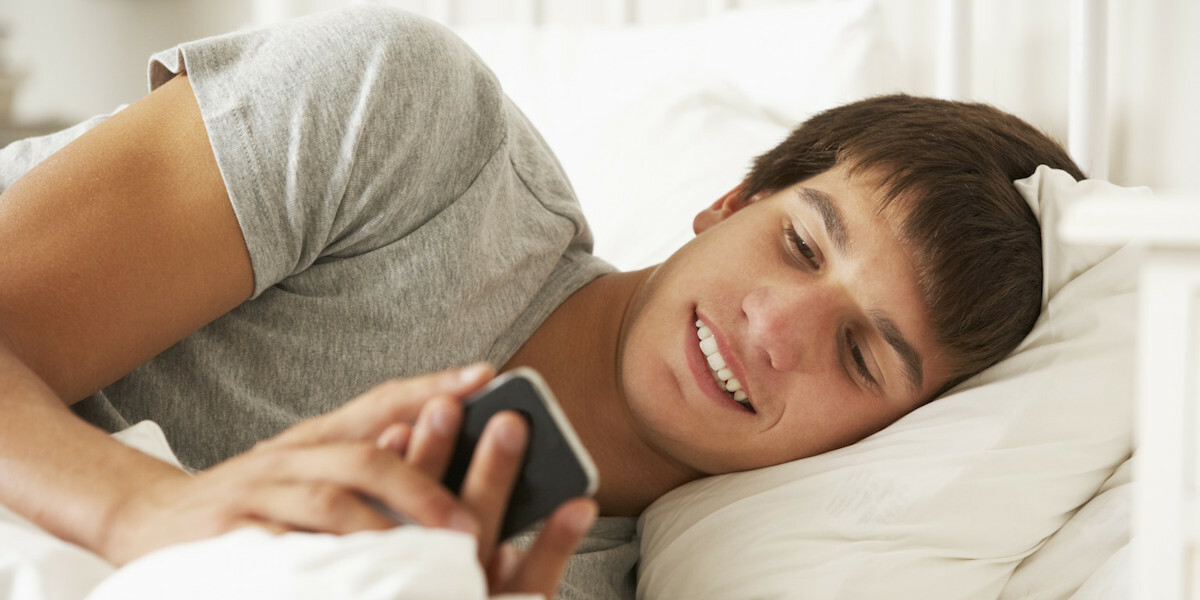*The following is excerpted from an online article posted on PsychCentral.
Emerging research suggests that young people are sleeping less than ever before with the sleep void potentially damaging their physical and mental health.
Ironically, but perhaps not surprisingly, San Diego State University investigators discovered the decline in restorative slumber is linked to technology and because teens are trading their sleep for smartphone time.
Most sleep experts agree that adolescents need nine hours of sleep each night to be engaged and productive students; less than seven hours is considered to be insufficient sleep. However, a peek into any bleary-eyed classroom in the country will tell you that many youths are sleep-deprived, but it’s unclear whether young people today are in fact sleeping less.
Jean Twenge, a professor of psychology at San Diego State University, along with psychologist Zlatan Krizan and graduate student Garrett Hisler — both at Iowa State University in Ames, wanted to quantify how much kids are sleeping, and, if the hours are less than previous generations, then why the change?
To do this, the research team examined data from two long-running, nationally representative, government-funded surveys of more than 360,000 teenagers.
The Monitoring the Future survey asks U.S. students in the eighth, 10th, and 12th grades how frequently they receive at least seven hours of sleep, while the Youth Risk Behavior Surveillance System survey queries ninth to 12th-grade students on how many hours of sleep they obtain on an average school night.
Combining and analyzing data from both surveys, the researchers found that about 40 percent of adolescents in 2015 slept less than seven hours a night, which is 58 percent more than in 1991 and 17 percent more than in 2009.
Delving further into the data, the researchers learned that the more time young people reported spending online, the less sleep they got. Teens who spent five hours a day online were 50 percent more likely to not sleep enough than their peers who only spent an hour online each day.
Not only might teens be using their phones when they would otherwise be sleeping, the authors note, but previous research suggests the light wavelengths emitted by smartphones and tablets can interfere with the body’s natural sleep-wake rhythm.
The study results appear in the journal Sleep Medicine.
Source: PsychCentral
https://psychcentral.com/news/2017/10/20/smartphones-compromise-teens-sleep/127694.5

